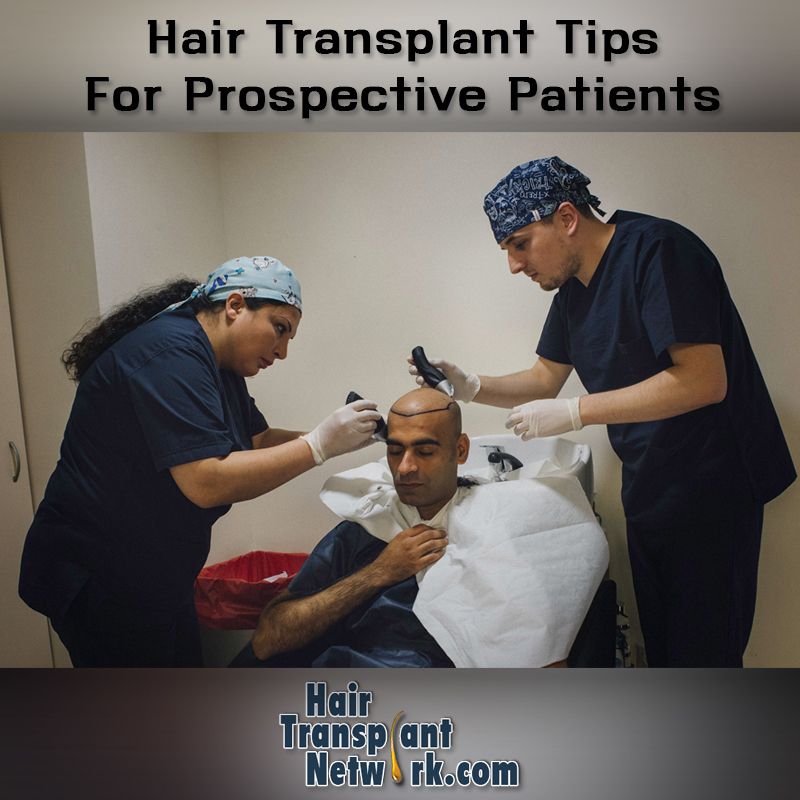Hair Transplant Tips For Prospective Patients
Undergoing hair transplant surgery is typically an exciting experience for both men and women as it means the promise and hope of restoring one’s hair. However, to avoid complications, it’s crucial to follow the post operative instructions provided by your hair restoration surgeon. In this article, we provide genuine information and tips on how to manage your hair transplant after the procedure.
Clean the scalp thoroughly after hair transplantation
After surgery, it’s crucial to keep the scalp clean to help prevent any infections. A thorough cleaning of the recipient area will eliminate scabs and crusts around the newly transplanted hair. Crusts and scabs are considered normal however, following your doctors postoperative instructions will help to remove these safely And typically takes less than a week. Failure to follow these instructions may result in long-term scabs and crusts that could potentially suffocate the follicle and as a result, prevent the new hair from ever growing.

Prospective patients can employ different cleaning methods after the procedure. Some patients dampen their scalp with warm water and baby shampoo until the scabs are moist and come loose. The scabs are then removed by gently massaging the scalp in a circular motion with your fingertips.
Another method patients may employ is to gently massage their scalps with non-harsh conditioners and then wash it off with lukewarm water until the scabs come off completely. Patients are advised not to use hair care products, chemicals, or hair oil prior to and after the procedure .
Avoid smoking and drinking alcohol
Drinking alcohol and smoking is detrimental to wound healing post hair transplant. It can increase the risk of an infection to the by lessening the body’s ability to fight harmful bacteria and other micro-organisms.
Prospective patients are advised to refrain from smoking and consuming alcohol before and after the procedure. Alcohol induces bleeding during hair transplant surgery. Similarly, nicotine products and smoking constrict blood vessels making it tough for blood to get to the surgical area. Besides, smoking also has an adverse effect on the healing process. It additionally affects recovery and aggravates surgical wounds on the scalp.
Use hair growth supplements
Although hair transplant surgery does not require any creams, lotions, or pills for the transplanted hair to grow, doctors sometimes suggest patients use a few beneficial products. These hair care products and collagen capsules extend the growth phase and reduce the resting phase.
Physicians recommend Minoxidil, a drug approved by the FDA in treating androgenic alopecia (genetic hair loss). Using Minoxidil on the scalp may hasten transplanted hair growth following a hair transplant procedure. Other hair care products suggested by doctors are Methylsulfonylmethane (MSM) and Biotin. These products have been known to promote and expedite natural hair growth.
MSM is a sulfur-based chemical compound that boosts keratin levels in the body. Keratin is essential for the growth of hair, skin, and nails. While Biotin is a water-soluble compound, also called Vitamin B7, helps to maintain nails, skin, and hair in the body.
Avoid direct sunlight and extreme cold post the surgery
Patients are recommended to conceal their scalps with loose fitting hats or bandanas for the first three months. This is to prevent the scalp from getting exposed directly to the sun, rain, or snow. Exposing the scalp can hinder the healing process for many reasons.
If a patient has undergone a minor hair transplant, they are advised to use mild sunscreens when going out in the sun. However, in any such case, patients must use the necessary precautions while exposing their scalp (recipient site) to the sun.
The harmful ultraviolet (UV) rays have the ability to penetrate the outer layer of the skin (epidermis) and injure hair follicles that are yet to be healed. UV rays can make existing hair frail and further aggravate the situation. Similarly, the snow and rain can dampen the scalp and delay the healing of scars and wounds.
Patients should not apply sunscreen or any other hair chemical directly to the scalp unlit the wounds are completely healed. In addition to this, for the first one week, patients should carry an umbrella or wear loose hats and bandanas so that the hair grafts remain intact.
Hair loss and balding are common issues faced by thousands of people worldwide. The use of the latest hair transplant donor harvesting techniques like - follicular unit extraction (FUE), follicular unit strip surgery (FUSS), etc. can replace lost hair, confidence, and self-esteem.
By undertaking detailed research and the following tips from experts on the hair restoration forum, it should be possible for patients to get their doubts clarified concerning hair transplant surgery. Ultimately, the objective of any hair restoration procedure is to make the patient happier and more confident about themselves.


